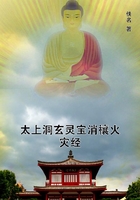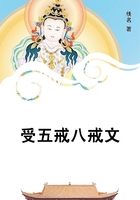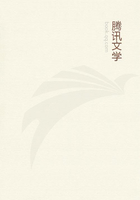But the question is not how things in themselves, but how the empirical cognition of things is determined as regards the above aspects of judgments in general, that is, how things, as objects of experience, can and shall be subsumed under these concepts of the understanding. And then it is clear, that I completely comprehend not only the possibility, but also the necessity of subsuming all phenomena under these concepts, that is, of using them for principles of the possibility of experience. Sect. 29. When making an experiment with Hume's problematical concept (his crux metaphysicorum), the concept of cause, we have, in the first place, given a priori, by means of logic, the form of a conditional judgment in general, i.e., we have one given cognition as antecedent and another as consequence. But it is possible, that in perception we may meet with a rule of relation, which runs thus: that a certain phenomenon is constantly followed by another (though not conversely), and this is a case for me to use the hypothetical judgment, and, for instance, to say, if the sun shines long enough upon a body, it grows warm. Here there is indeed as yet no necessity of connection, or concept of cause. But I proceed and say, that if this proposition, which is merely a subjective connection of perceptions, is to be a judgment of experience, it must be considered as necessary and universally valid. Such a proposition would be, II the sun is by its light the cause of heat." The empirical rule is now considered as a law, and as valid not merely of appearances but valid of them for the purposes of a possible experience which requires universal and therefore necessarily valid rules. I therefore easily comprehend the concept of cause, as a concept necessarily belonging to the mere form of experience, and its possibility as a synthetical union of perceptions in consciousness generally; but I do not at all comprehend the possibility of a thing generally as a cause, because the concept of cause denotes a condition not at all belonging to things, but to experience. It is nothing in fact but an objectively valid cognition of appearances and of their succession, so far as the antecedent can be conjoined with the consequent according to the rule of hypothetical judgments. Sect. 30. Hence if the pure concepts of the understanding do not refer to objects of experience but to things in themselves (noumena), they have no signification whatever. They serve, as it were, only to decipher appearances, that we may be able to read them as experience. The principles which arise from their reference to the sensible world, only serve our understanding for empirical use. Beyond this they are arbitrary combinations, without objective reality, and we can neither know their possibility a priori, nor verify their reference to objects, let alone make it intelligible by any example; because examples can only be borrowed from some possible experience, consequently the objects of these concepts can be found nowhere but in a possible experience. This complete (though to its originator unexpected) solution of Hume's problem rescues for the pure concepts of the understanding their a priori origin, and for the universal laws of nature their validity, as laws of the understanding, yet in such a way as to limit their use to experience, because their possibility depends solely on the reference of the understanding to experience, but with a completely reversed mode of connection which never occurred to Hume, not by deriving them from experience, but by deriving experience from them. This is therefore the result of all our foregoing inquiries: "All synthetical principles a priori are nothing more than principles of possible experience, and can never be referred to things in themselves, but to appearances as objects of experience. And hence pure mathematics as well as a pure science of nature can never be referred to anything more than mere appearances, and can only represent either that which makes experience generally possible, or else that which, as it is derived from these principles, must always be capable of being represented in some possible experience." Sect. 31. And thus we have at last something definite, upon which to depend in all metaphysical enterprises, which have hitherto, boldly enough but always at random, attempted everything without discrimination. That the aim of their exertions should be so near, struck neither the dogmatical thinkers nor those who, confident in their supposed sound common sense, started with concepts and principles of pure reason (which were legitimate and natural, but destined for mere empirical use) in quest of fields of knowledge, to which they neither knew nor could know any determinate bounds, because they bad never reflected nor were able to reflect on the nature or even on the possibility of such a pure understanding. Many a naturalist of pure reason (by which I mean the man who believes he can decide in matters of metaphysics without any science) may pretend, that lie long ago by the prophetic spirit of his sound sense, not only suspected, but knew and comprehended, what is here propounded with so much ado, or, if he likes, with prolix and pedantic pomp: "that with all our reason we can never reach beyond the field of experience." But when he is questioned about his rational principles individually, he must grant, that there are many of them which be has not taken from experience, and which are therefore independent of it and valid a priori . How then and on what grounds will he restrain both himself and the dogmatist, who makes use of these concepts and principles beyond all possible experience, because they are recognized to be independent of it? And even he, this adept in sound sense, in spite of all his assumed and cheaply acquired wisdom, is not exempt from wandering inadvertently beyond objects of experience into the field of chimeras. He is often deeply enough involved in them, though in announcing everything as mere probability, rational conjecture, or analogy, be gives by his popular language a color to his groundless pretensions. Sect. 32. Since the oldest days of philosophy inquirers into pure reason have conceived, besides the things of sense, or appearances (phenomena), which make up the sensible world, certain creations of the understanding (Verstandeswesen), called noumena, which should constitute an intelligible world. And as appearance and illusion were by those men identified (a thing which we may well excuse in an undeveloped epoch), actuality was only conceded to the creations of thought. And we indeed, rightly considering objects of sense as mere appearances, confess thereby that they are based upon a thing in itself, though we know not this thing in its internal constitution, but only know its appearances, viz., the way in which our senses are affected by this unknown something.
同类推荐
热门推荐
盛世婚宠:总裁大人不好惹
他是A市高高在上高冷值爆表的国民老公洛亦辰,她是家族败落委身于他的伪女神——颜子沫。小时候第一次见面,她爬上他的大腿,尿了他一身。上学时第二次见面,她眨着无辜的大眼睛:“哥哥,你谁啊?”四年离别,再次相见,她被人送到他的床上。她一直以为她们之间是有感情的,却不料那夜夜笙歌在他眼里不过是一场交易!某天,她终于炸毛了:“说好的只是交易呢?交易结束,麻烦你放手!我还要找下家!”他一把将她按在下面:“我睡过的女人谁敢接?再说,你打算带着我的继承人去哪儿?追妻无门:女boss不好惹
青涩蜕变,如今她是能独当一面的女boss,爱了冷泽聿七年,也同样花了七年时间去忘记他。以为是陌路,他突然向他表白,扬言要娶她,她只当他是脑子抽风,他的殷勤她也全都无视。他帮她查她父母的死因,赶走身边情敌,解释当初拒绝她的告别,和故意对她冷漠都是无奈之举。突然爆出她父母的死居然和冷家有丝毫联系,还莫名跳出个公爵未婚夫,扬言要与她履行婚约。峰回路转,破镜还能重圆吗? PS:我又开新文了,每逢假期必书荒,新文《有你的世界遇到爱》,喜欢我的文的朋友可以来看看,这是重生类现言,对这个题材感兴趣的一定要收藏起来。















